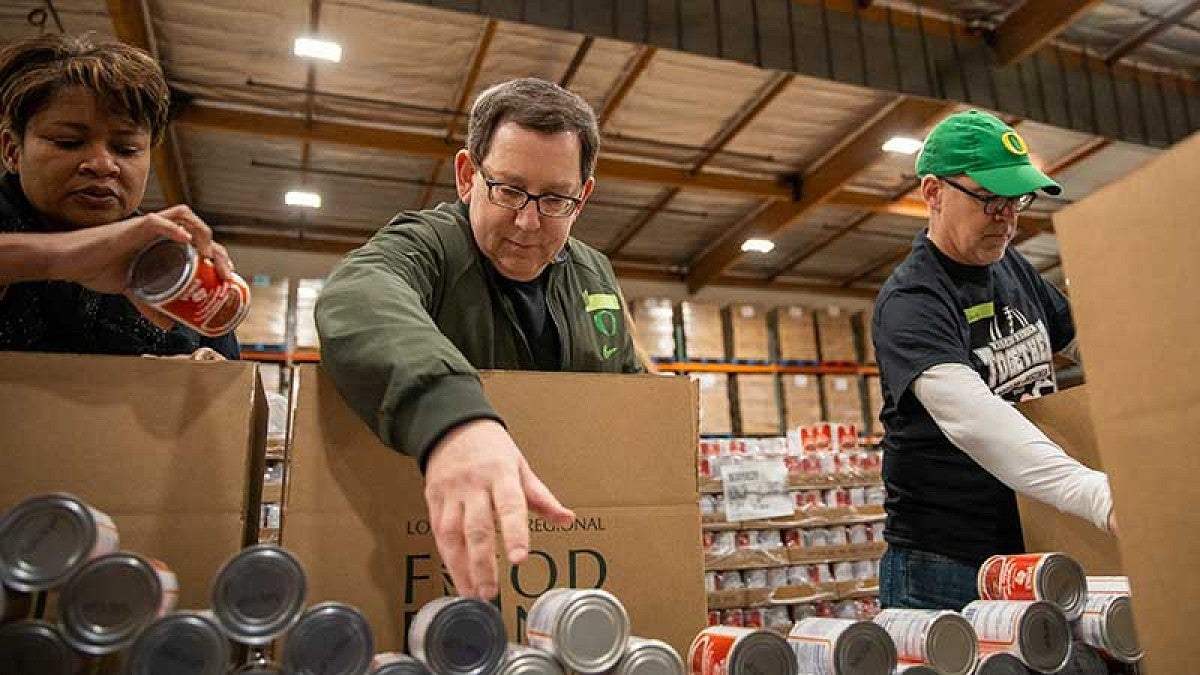More than 100 members of the University of Oregon and University of Wisconsin communities spent the morning of Dec. 31 at the Los Angeles Regional Food Bank, assembling food boxes for low income elderly residents.
In all, 2,240 boxes were filled, marking a successful continuation of a tradition that started with a service project held in conjunction with the Ducks’ 2010 Rose Bowl appearance against Ohio State University.
“The UO has a longstanding tradition of organizing a volunteer service project to benefit and connect with the local community when we travel to major bowl games,” said President Michael Schill. “Giving back is a key part of our mission: to educate, research and serve, and we are proud to join with our colleagues from the University of Wisconsin to fight hunger together.
Joining Schill at the event were the deans of the UO’s senior colleges, along with staff members and student leaders. After starting the service event by watching a video that featured food box recipients explaining how much the packages help them, the volunteers assembled boxes, then filled them with such items as fruit juice and cereal, before sealing the boxes for distribution.
“Service is the rent you pay for the privilege of occupying space on this planet,” said Kevin Marbury, vice president for student life.
While the mission was a serious one, the mood was not. Both the Oregon Marching Band and the University of Wisconsin Marching Band were on hand to perform, and the Duck and Bucky Badger were there to offer what assistance they could. University employees in green and red worked together, putting aside the Rose Bowl rivalry in a display of unity to help those less fortunate.
“It’s important to serve those in our community, because food insecurity is a huge issue and working together to do what we can is very important,” said Associated Students of the University of Oregon president Sabinna Pierre.
The ASUO and the Office of the Dean of Students help oversee the UO’s food security programs on campus, which address student food insecurity issues not unlike those faced by the recipients of the LARFB’s food boxes.
“It helps students that are facing food insecurity,” explained Pierre. “By making sure we provide resources for the students, it will help them do well in the classroom.”


